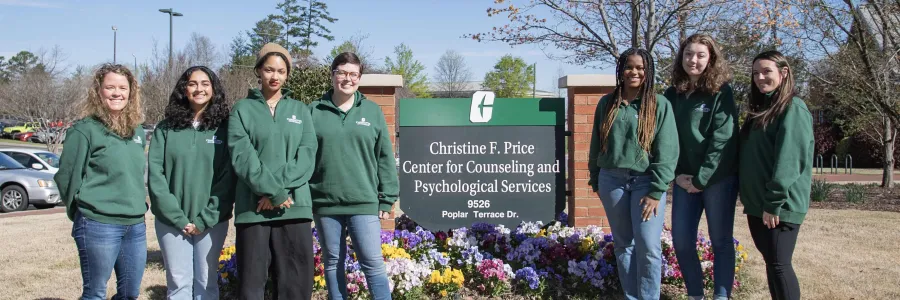By Wyatt Crosher, Assistant Director of Communications for Student Affairs
Good news: there is no wait for students seeking an initial appointment at CAPS anymore.
For college students who make the decision to seek professional mental health support, two of the largest hurdles to overcome can be the availability of counselors and timeliness of appointment scheduling.
Recognizing these challenges and in response to increasing demand for services, CAPS introduced a change to its service model last semester, moving to the “same-day access model,” and the results are impressive.
Now when students contact CAPS to schedule a first appointment, there is no waiting period to talk to a professional. These appointments are available the same day, on Mondays-Thursdays from 9-11:30 a.m. and 1:30-4 p.m. These introductory appointments are typically 15-20 minutes and focused on assessing needs, addressing any immediate concerns and providing recommendations for future services.
This is a change for CAPS, but not a fully new one: Dr. Sam Simono, CAPS' first director, had a walk-in process at Charlotte's counseling center during the 1990s. Erica Lennon, director of CAPS, said the decision to move to same-day appointments now was not only to help increase accessibility for students, as well as assist them in a timely manner, but also to potentially address a situation before it worsens.
“If there is too much time between when a student needs a first appointment and when they can access one, their symptoms could intensify and actually get worse,” Lennon said. “They may not be in crisis when they call, but by the time we saw them, it may have actually deteriorated into a crisis situation. That was a primary driving force.”
The results of this model change have been positive. In Fall 2022, by the 10th week of the semester, only 63% of students had shown up for their first counseling appointment. Compare that to Fall 2023, which had a 100% show rate by the 10th week.
To make this switch, CAPS has created an access team — a group of clinicians taking students on a first-come, first-serve basis in the mornings and afternoons. The access teams meet with the students, assess their needs and make recommendations for what services may be needed moving forward.
These services can be within CAPS, in other areas on campus or potentially in the Charlotte community when beneficial to the student. Lennon said this is all part of CAPS’ personalized care model, which focuses on finding the right types of services for students at the University or in the greater community.
"A lot of times, individual counseling is looked at as the only form of treatment to address mental health concerns,” Lennon said. “This can actually be pretty harmful, because it creates a certain box that you force everybody into when there are things that expand beyond individual counseling that may actually be better suited to a students’ needs.”
CAPS refers to this expanded lens as a “personalized care model” that may include multiple components of treatment including short-term individual counseling, as well as group therapy, workshops, consultation services, their Let's Talk series (a no-appointment drop-in consultation service offered across campus), outreach programming and campus partnerships.
They also partnered, along with the other departments in the Health and Wellbeing Unit, to recently introduce the “Togetherall” online peer-to-peer mental health support community free to all UNC Charlotte students.
Outside of same-day appointment hours, CAPS still offers services for students who need more immediate assistance. On Fridays, CAPS is available to address urgent and crisis needs specifically. There is also a 24/7 on-call counselor service that can be reached by calling the main CAPS number and following the prompts to access an on-call clinician. More information on crisis assistance services is available on the CAPS website.
While the same-day appointments model has been a success, Lennon said it’s now about making sure students know about the change to ensure they make the most of the resources available at Charlotte.
“It's very different from what students who have been for a while are accustomed to,” Lennon said. “But once students know they're able to access [same-day initial appointments], they have seemed to respond very positively about that change."
Note: This story has been updated to include information on Dr. Simono's work with same-day appointments for the University.
More information on same-day appointments and quick access resources can be found on the CAPS website.
